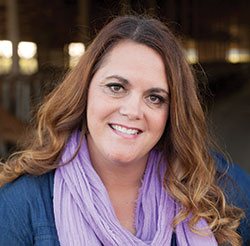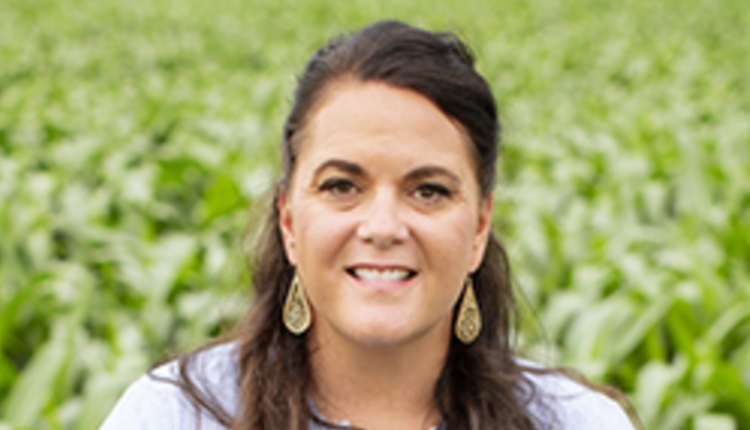
I’ve learned this the hard way. For more than four years, I’ve battled with anxiety. I’ve never written these words on paper; the only people aware of these feelings are my husband, my doctor, and a handful of close friends. In the trough of my battle, the fog was thick, and I could not see. The panic came on strong and out of nowhere.
I bottled up my grief after losing my mother. Don’t get me wrong, I cried — a lot! But I would wipe away the tears and pick my kids up from school. I would fix dinner. I did the farm bookwork. I wrote stories. To the outside world, I had it together. Heck, I even fooled myself. I was functioning, until I wasn’t.
My heart would race, my mind wouldn’t stop. I wouldn’t sleep, and I would cry a lot. Nights were difficult. I would be relieved that I made it through the day but then be overwhelmed that much of the same would welcome me the next day.
Four years ago I checked myself into the emergency room. I knew something was wrong, and if I wanted to feel different, I needed to seek professional help. My nurse was a male hippie, and, honestly, he was the best medicine I could receive. He listened and assured me my problems were real and my heart must be overwhelmed.
The doctor confirmed I was having panic attacks and told me that it would be short-lived. I really wanted to believe him, but the hole in my heart was dug deeper than anything I had experienced before. I had a hard time believing the wound would ever heal.
He prescribed a low dose anxiety medicine and requested that I go to counseling. I’m not sure what was harder: for me to accept that I would need medicine or to talk to a therapist about what was going on in my head. How could a pill make me feel better? How could a therapist understand my pain?
I went to counseling, and my therapist was a big guy with a calming voice. He assured me that this, too, shall pass, and for the first time, there was a part of me that believed him. I had an ounce of hope, and I clung to it for dear life.
I found out that a lot of my stress was from worrying about worst-case problems. When Scott wouldn’t answer his phone, I would worry that he rolled the chopper and was pinned underneath. After losing my mother, I was worried who was next to die. The worrying was constant and did not stop.
The therapist told me that while he knew I was going to worry, he encouraged me to think more about likely problems, so that my worrying would be put to good use. Instead of thinking worst-case scenarios, think about more likely scenarios.
Doing just that tricked my mind and lessened the overwhelming feelings of my brain.
Mental health is very underdiagnosed in this country and truthfully only spoke about in a whisper. The few friends I have talked to about this have leaned in, shed a tear, and sighed with relief, as they, too, are struggling.
And all of us live a life that most cannot fathom. Working 24 hours a day, seven days a week, 365 days a year. In the quietness of our farmhouse, our stress can mount up: the never-ending to-do list, transition planning, paying bills, managing employees, and managing debt — sometimes lots of it.
It all can be too much to handle at times. We live in a world where you can connect to anyone at the palm of your hand, yet we feel more alone than ever before.
We grow food, but for many of us, we struggle with healthy eating. We work outdoors but struggle with growing waistlines. We work 40 hours by Tuesday and then put another 60 hours in, but do not carve out time to see a doctor. We go, until we can’t.
I write articles; of course, you know that. In addition, each morning I journal three things I’m grateful for. When I wake up reminded of these blessings, my step has a bounce in it.
I laugh. I talk to my husband, my friends, and my kids and try to not take life so serious. This one requires work on my end. Farming is a business and a serious business, but I try to carve out time for friends daily. Even if it’s a quick text or calling a friend up on the phone to meet for lunch.
On really stressful days, I end my day with a hot bath or hot tea, and sometimes both. I strive to get eight hours of sleep each night.
I haven’t had a panic attack in 18 months. The last one I had was the week that my father was dying.
Turn to your loved ones and check for signs of anxiety. Do they seem edgier for lack of a better word? Or is a loved one more distant? Talk to them. Listen to them. And encourage them to seek help. We all deserve to feel our best. Let’s make that our goal this year!
Around the Kitchen Table is a regular column in Hoard's Dairyman. The author and her husband work in partnership with family on a 450-cow dairy in East Moline, Ill.





